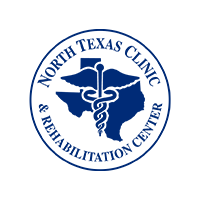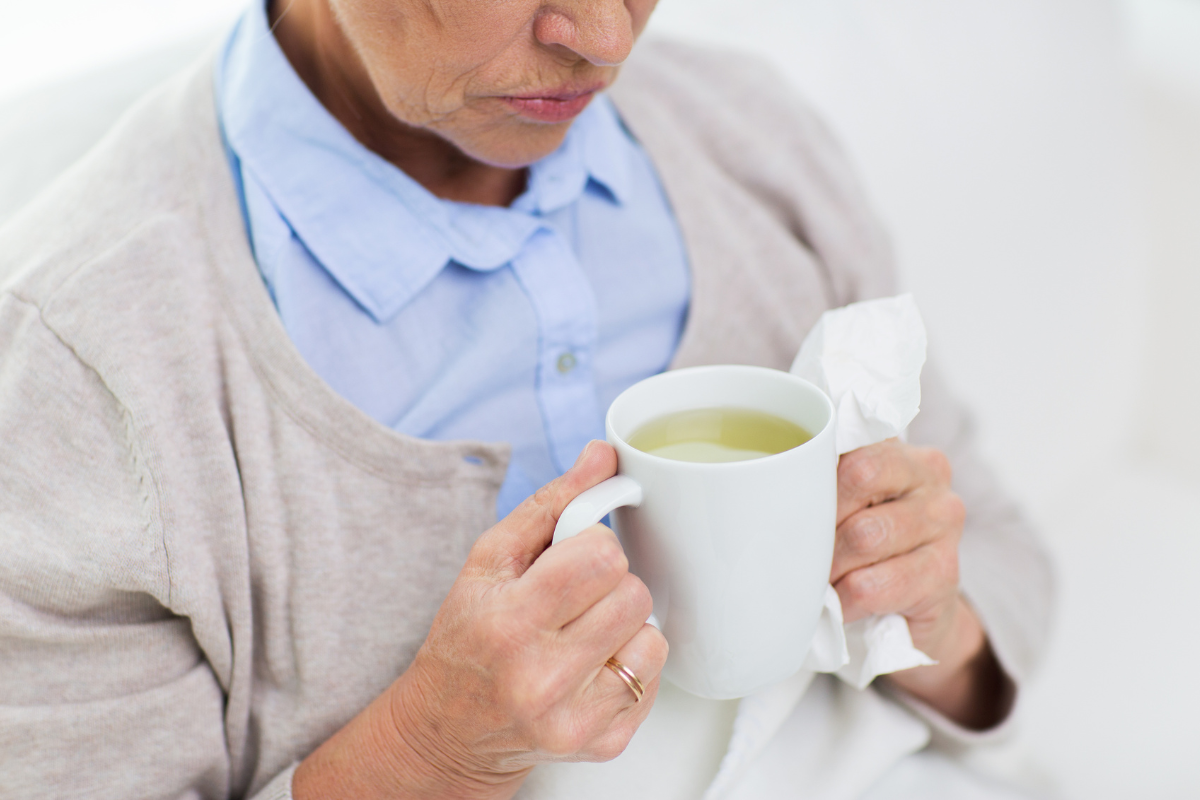You may think allergy season is long over, but it basically never ends in warm states like Texas. When one allergen count goes down, another goes up. So, diagnosing and treating seasonal allergies can be a year-long process for some people.
Seasonal allergies, often called hay fever, affect millions worldwide. Pollens, spores, dust, and animal dander typically trigger them. When you live in a temperate climate or have multiple triggers, the cyclical nature of allergens never ends.
Although they are incredibly common, allergies can significantly impact your quality of life, causing persistent symptoms like sneezing, congestion, shortness of breath, itchy eyes, and fatigue. While they may not be deadly, these are not fun symptoms to deal with.
That’s why diagnosing and treating your seasonal allergies is so vital. Whether you prefer home remedies, need medical help, or want to learn how to prevent flare-ups, these tips will help you live more comfortably all year long.
Diagnosing Seasonal Allergies
Treating any chronic condition starts with a diagnosis. Understanding what’s going on can help you and your healthcare provider shortcut the treatment process.
Diagnosis begins with understanding the symptoms and their triggers.
Seasonal allergies share many symptoms with illnesses like the cold and flu. However, they are different enough that medical professionals can typically tell them apart quickly based on when and how often you experience them.
If you come in with a sudden runny nose, congestion, and low-grade fever, you’re probably sick. But if your nose runs and eyes itch for days or weeks at a time, even intermittently, signs like that are usually caused by allergens.
To confirm a diagnosis, a healthcare provider may perform:
- Medical History — They’ll ask about your symptoms, their onset, and their correlation with seasons or situations (i.e., worse in the spring or recently got a new cat).
- Physical Examination — The provider will check for signs like nasal inflammation, dry eyes, rashes on the skin, or other common allergic reactions.
- Allergy Testing — Skin prick tests point to your specific triggers. A provider may also recommend blood tests for life-threatening allergies or to identify food-based triggers.
An accurate diagnosis is a crucial piece of the puzzle in successfully treating seasonal allergies.

Treating Seasonal Allergies with Medications
They say laughter is the best medicine, but not when you can’t breathe through your nose!
Fortunately, a considerable variety of allergy medications are on the market, both over-the-counter (OTC) and prescription. So, while it may take a little patience to find the one that works best, you will find relief.
OTC Allergy Medications
- Antihistamines — These are often the first line of defense against seasonal allergies. They block histamine, the substance in your body that causes allergic symptoms. Over-the-counter options include cetirizine (Zyrtec), loratadine (Claritin), and diphenhydramine (Benadryl).
- Decongestants — If nasal congestion is your primary concern, decongestants can provide relief by shrinking the blood vessels in your nasal passages without causing some of the less desirable side effects of antihistamines. Common decongestants include pseudoephedrine (Sudafed) and phenylephrine (Neo-Synephrine). However, they are not recommended for long-term use due to potential side effects like increased blood pressure.
- Combination Medications — Sometimes, treating seasonal allergies requires medications that combine an antihistamine with a decongestant for comprehensive symptom relief. An example is loratadine-pseudoephedrine (Claritin-D).
- Nasal Corticosteroids* — These are anti-inflammatory sprays that reduce swelling in the nasal passages, leading to less congestion and fewer symptoms. Examples include fluticasone (Flonase), oxymetazoline* (Afrin), and phenylephrine* (Neo-Synephrine). These are often more effective and faster-acting than oral antihistamines for nasal symptoms.
- Topical Medications — There are also topical variations of these medications in creams and eye drops for skin irritations or eye symptoms.
*IMPORTANT NOTE ABOUT NASAL SPRAYS:
Despite the common myth, nasal decongestants are not “addictive” in the traditional sense.
However, using sprays containing oxymetazoline and phenylephrine longer than the recommended amount (3 days) can cause a condition called ‘rebound congestion.’ This situation creates an uncomfortable dependency on nasal sprays because your nose’s blood vessels swell back up immediately after the medication wears off, leading to a continuous cycle of needing more.
While the condition will resolve after you stop using nasal sprays, it may take a week or more. And the congestion and headaches in the meantime are reportedly very painful.
Nasal sprays are perfectly safe and effective for most people, though you should always ask your provider first if you have chronic conditions or take daily medications. But as with all medicines, be sure to use them only as directed, and talk to your provider about alternatives if symptoms persist.
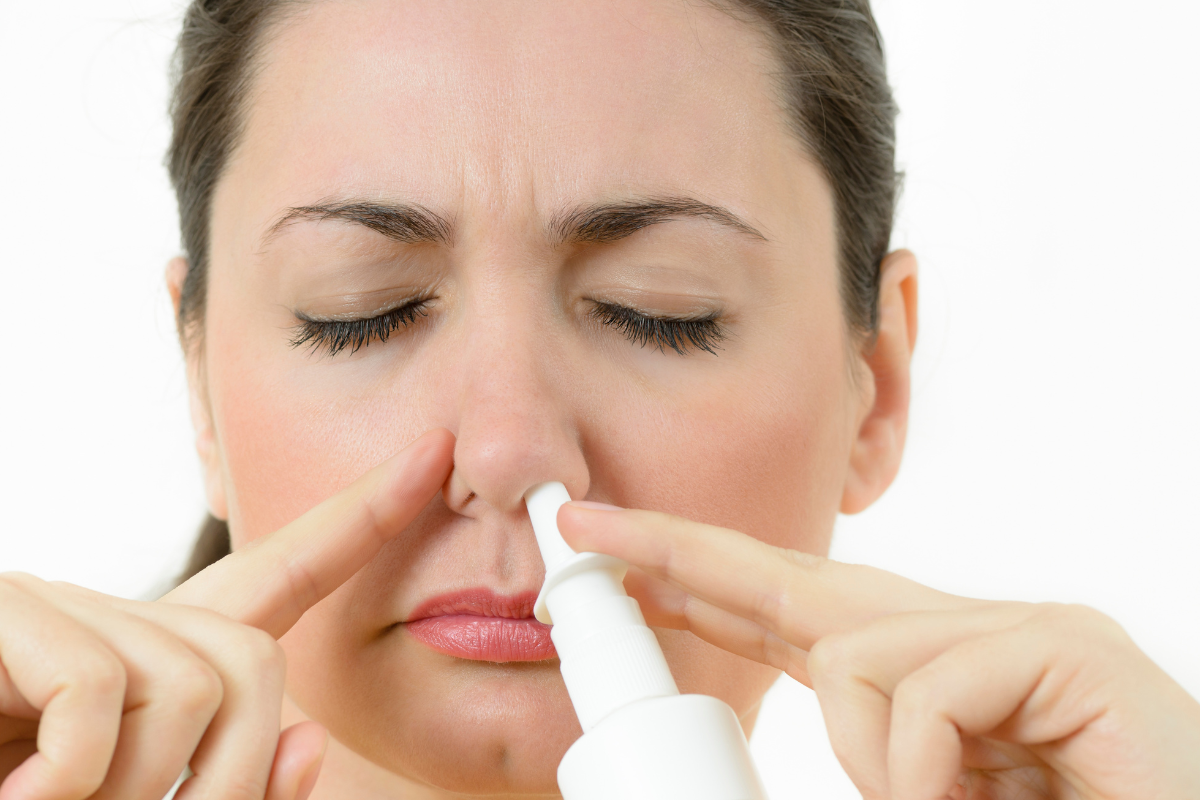
Prescription Treatments
- Prescription Medications — Many of the above medications also come in stronger or more targeted prescription versions. Talk to your provider if you are struggling to find relief with OTC treatments.
- Leukotriene Modifiers — Montelukast (Singulair) is a prescription medication that blocks the action of leukotrienes, chemicals in the body that contribute to allergy symptoms. It’s often used when antihistamines and nasal sprays aren’t enough. Other leukotriene modifiers treat asthma.
- Allergen Immunotherapy — Also known as allergy shots, allergen immunotherapy is for those who cannot avoid allergens or have severe allergies. This treatment involves regular injections of small amounts of your specific triggers over several years, helping the body build up tolerance.
Whether using OTC or prescription medications, each person’s responses can vary. What works for one person may not work for you. So, finding the right combination for your immune system might take some time.
However, if you work with your provider and be patient, you will find an option or combination that alleviates your symptoms and makes your life easier.
Home Remedies for Treating Seasonal Allergies
While over-the-counter and prescription medications can be highly effective, many people seek natural remedies for treating seasonal allergies. Either they want to reduce the amount of medicines they take, or they prefer a more natural route for less severe symptoms.
Fortunately, many home remedies can help with stuffy noses, itchy eyes, and other everyday annoyances caused by allergies.
- Saline Nasal Rinse — Rinsing your nasal passages with a lukewarm saline solution can help remove allergens from your nose and reduce nasal congestion and inflammation. Neti pots or saline nasal sprays are popular for this purpose.
- Steam Inhalation — Inhaling steam from a bowl of hot water or (from a safe distance) a face steamer can help soothe irritated nasal passages and loosen mucus. Another excellent option is sleeping with a humidifier to add helpful moisture to your environment. Warm, damp towels over the face and warm showers also work wonders.
- HEPA Filters — Using high-efficiency particulate air (HEPA) filters in your home can help reduce the number of airborne allergens. These filters can be particularly effective in your bedroom, ensuring a restful night’s sleep.
- Essential oils — Adding essential oils, such as peppermint and eucalyptus, to a humidifier or diffuser can reduce nasal inflammation and encourage sinus relief. Another option, when diluted with a carrier oil, is to apply it directly to the skin.
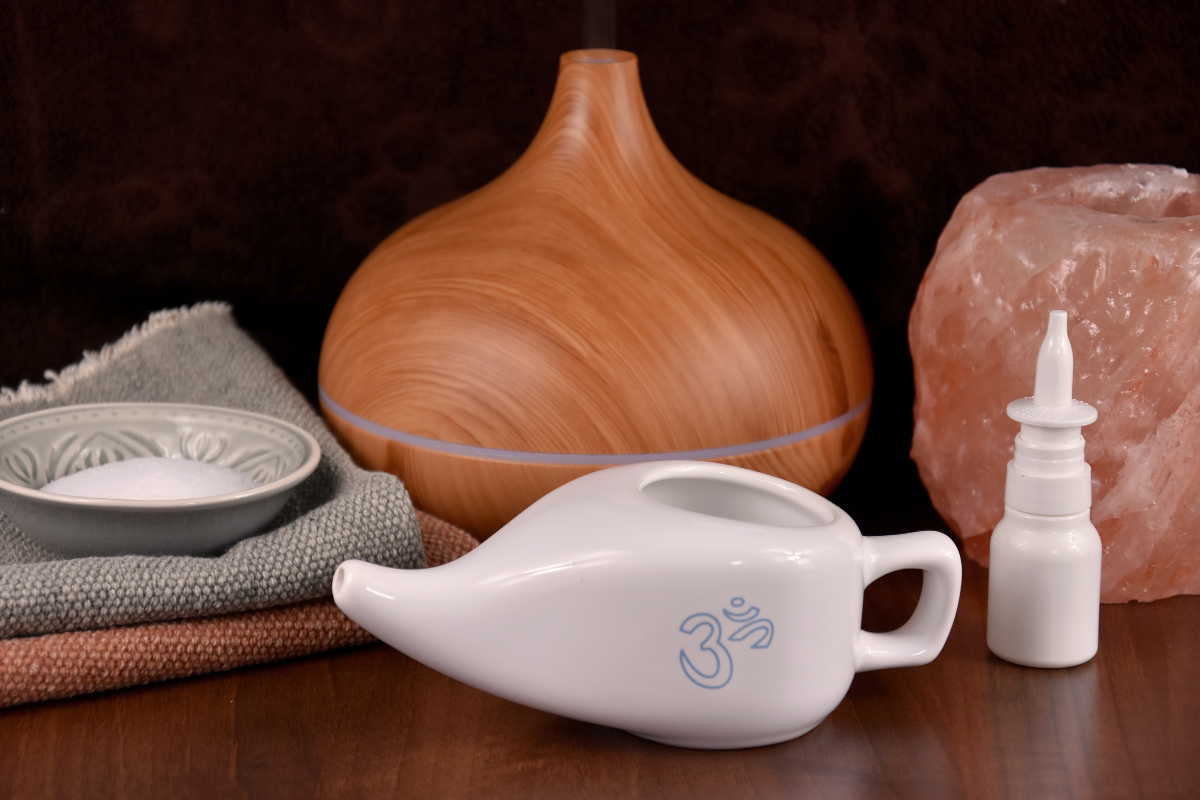
Natural Supplements for Allergies
- Local Honey — Although scientific studies have yet to prove its effectiveness, there are decades of anecdotal evidence of people successfully treating seasonal allergies with local honey. The theory is that by ingesting honey made in your area, you’re consuming small doses of the pollens that trigger allergies. Eating honey with these pollens acts as a natural immunotherapy.
- Herbal Teas — Few things feel better than hot tea with honey, especially when you don’t feel your best. Drinking herbal teas like ginger, peppermint, or chamomile can relieve allergy symptoms. These teas may help reduce inflammation and soothe the throat.
- Quercetin — This natural antioxidant, found in foods like apples, onions, and black tea, has anti-inflammatory and antihistamine properties. Some test tube studies suggest quercetin stabilizes mast cells, which release histamine in response to allergens. By slowing or stopping histamine release, allergy symptoms will resolve.
- Bromelain — This fruit-derived enzyme has well-known anti-inflammatory effects. It can reduce nasal inflammation and improve breathing.
- Butterbur — A naturally growing marsh plant, butterbur has shown promising results in stopping allergic reactions in multiple studies involving both humans and rats. It is also a natural treatment for migraines.
- Spirulina — A blue-green algae often added to green powders and smoothies, spirulina has been shown to reduce allergic rhinitis.
- Probiotics — Some studies suggest that probiotics, taken as supplements or consumed with things like yogurt and kombucha, can improve your immune system’s response to allergy triggers.
Essential Precautions for Natural Remedies
While these remedies can offer relief, it’s essential to remember that they may not be as effective as medical treatments, especially for severe allergies. With limited scientific studies proving their efficacy, some may not work for you.
It’s also crucial to remember that natural remedies are not a substitute for medical intervention during anaphylactic shock or other severe reactions.
If you or someone you know is experiencing difficulty breathing, chest pains, dizziness or fainting, vomiting, severe rash, or blood pressure changes, do not attempt natural remedies. Call 9-1-1 or your healthcare provider immediately, as these could be signs of a life-threatening allergic reaction.
Furthermore, while most of these remedies are completely safe options for treating seasonal allergies, it’s still important to use them as directed. And always consult your provider about possible interactions with other medications, even with natural herbs and supplements.
How to Prevent Seasonal Allergy Flareups
The best treatment for managing allergies is prevention. While it’s often impossible to completely avoid allergens, there are steps you can take to minimize your exposure and severity of symptoms.
First, make sure you check your weather source for daily pollen counts. During high-pollen days, try to stay indoors as much as possible, especially in the early morning and late afternoon when pollen is at its highest.
Keep your windows and doors closed to prevent pollen from entering your home.
Dust is another common allergen, making cleaning your house even more important. In addition to regular dusting and vacuuming, be sure you have your AC vents cleaned and system serviced regularly. Use HEPA filters where possible and change them as recommended. Air purifiers may also help remove pollen, dust, and other allergens from your indoor air.
If you work outside, either in your job or around your home, shower quickly. Pollen can stick to hair, skin, and clothing. And although it’s better for the environment, avoid line-drying clothes for this exact reason.
While mowing, you may want to wear a mask and sunglasses or goggles to limit pollen entering your eyes, nose, and mouth. Keeping outdoor-only boots or shoes in your garage can also decrease the amount of allergens you bring into your home.
Finally, avoidance works best when you know what to avoid. Allergy testing can pinpoint what you are and are not allergic to. Different allergens are more common during specific seasons. So, knowing what triggers your allergies can help you know when to be more cautious and when it’s safer to be outside.

Treating Seasonal Allergies is Possible
Seasonal allergies can be a frustrating and disruptive part of life. The fact that it’s the environment and your immune system making you feel crummy makes it even more frustrating.
However, with the right approach, you can manage symptoms and maybe even avoid them altogether.
An exact diagnosis of what you’re allergic to is the first step toward relief. Home remedies can offer comfort, and medical treatments can control symptoms fully. Preventive measures, such as monitoring pollen counts and keeping indoor air clean, are crucial in reducing exposure to allergens.
By combining these strategies, treating seasonal allergies will allow you to breathe easily throughout the changing seasons.

